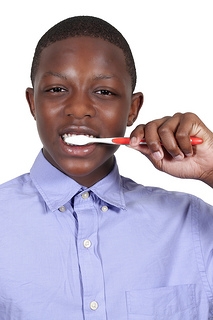Valentine Candy: Is It 4 U?
February 12th, 2025

It’s Valentine’s Day. Love and friendship are in the air, and candy is on the gift list. Are there tasty Valentine treats that are safe to eat even with your braces? We have some sweet news for you!
Safe Valentine candy, like the rest of your braces-friendly diet, won’t stick to your braces (potentially causing cavities) or damage them (potentially causing emergency visits to the orthodontist). In other words, foods that aren’t sticky, chewy, hard, or crunchy.
So, which candy treats are on the “Loves Me Not” list?
- Chewy Candies
Love heart-shaped gummies? Or spicy cinnamon jellies? Or Valentine-pink taffy? These sweet confections might be delicious, but, no matter how delicious, all that sugar sticking to your brackets and wires is not healthy for your teeth and it’s especially hard to brush off. And the chewy nature of these treats can break wires and pull brackets loose from your enamel.
- Hard Valentine Candies
Do U luv these? R they UR favorites? Whether or not they come in the shape of colorful hearts with clever stamped messages, as crunchy nuts surrounded by chocolate, or as gleaming red hearts on a lollipop stick, hard candies R not 4 U when you wear braces. Biting down on hard foods can damage wires and loosen brackets.
- Boxes of Assorted Chocolates
The beauty of a heart-shaped box filled with chocolates is its variety. The problem with a heart-shaped box filled with chocolates is its variety. Any pieces with nuts, toffee, or caramel should be left in their little paper cups. Sticky, chewy, and crunchy foods are some of the worst offenders when it comes to damaging your braces. If your candy doesn’t come with descriptions, break open the piece before you indulge to see just what you’re biting into.
Is this list a bit depressing? Take heart! There are several Valentine’s options that are safe for your braces.
- Soft Chocolates
Any kind of soft chocolate should leave your braces intact—and if you choose dark chocolate, you’ll be enjoying less sugar and more minerals and antioxidants.
- Chocolate-Covered Peanut Butter Candies
These treats are also soft enough to be harmless to your brackets and wires. And if they’re molded into hearts? Bonus!
- Boxes of Assorted Candies
The problem with a heart-shaped box filled with chocolates is its variety. The beauty of a heart-shaped box filled with chocolates is its variety. Nestled among all the sticky, chewy, and crunchy chocolates are the safer soft cream centers. Choose the braces-friendly options and share the rest.
Whether you’re buying a candy gift for someone in braces, or you’re the lucky giftee, choose candies that will make Valentine’s Day memorable for all the right reasons! Don’t be afraid to think out of the (heart-shaped) box—pink milkshakes or smoothies, sweetly decorated cupcakes, and creamy pastel ice creams and frozen yogurts are soft, smooth, and safe holiday treats.
Of course, after indulging in any Valentine treat, be sure to clean your teeth and braces carefully. Cavities are never fun, and especially not when you’re in braces. Brush and floss after eating, and make sure your brackets and wires are clear of any sticky, sugary souvenirs. If you do have a problem with damaged wires or brackets, be sure to call our Tampa office right away to keep your treatment plan on track. Valentine’s Day comes once a year, but your beautiful, healthy smile? You want it to last 4ever!











 Website Powered by Sesame 24-7™
Website Powered by Sesame 24-7™